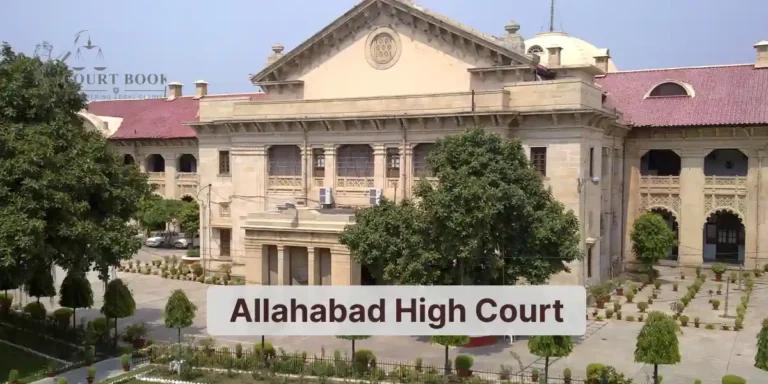The Allahabad High Court has ruled that a Magistrate is not obligated to issue a notice to the informant when taking cognizance only against those named in the charge sheet while leaving out others mentioned in the FIR but not charge-sheeted. This clarification came in a judgment delivered by Justice Manju Rani Chauhan, addressing whether the informant must always be heard before a Magistrate proceeds with only the charge-sheeted accused.
The Court emphasized that issuing a notice to the informant in every such case would cause unnecessary delays in the legal process. It observed that the informant retains the right to present evidence during the trial, which may result in additional individuals being summoned under Section 319 of the Code of Criminal Procedure (CrPC).
The Court noted:
"If the Magistrate is satisfied with the police report and finds no ground to summon the un-chargesheeted individuals, they may proceed without necessarily hearing the informant. The informant can always challenge the final report by filing a protest petition, which shall be heard by the concerned Magistrate."
Background of the Case
The ruling came in response to a plea filed by Smt. Suman Prajapati, challenging an order passed by the Additional Chief Judicial Magistrate. In a matrimonial cruelty case, the trial court had taken cognizance against only one accused named in the charge sheet, excluding five others initially named in the FIR.
The charge sheet was filed solely against Tripurari Prajapati, while the police submitted a final report exonerating the other five individuals. The informant (Suman Prajapati) contended before the High Court that she was neither informed about the investigation's progress nor provided a copy of the case diary before the final report was submitted to the lower court.
The informant’s counsel argued that, as per natural justice principles, she had a right to be heard before the Magistrate decided to exclude the non-charge-sheeted accused. Relying on the Supreme Court judgment in Bhagwat Singh vs. Commissioner of Police, the counsel maintained that the Magistrate should have issued a notice to the informant before proceeding only against the charge-sheeted accused.
The Additional Government Advocate (AGA), on the other hand, countered that issuing such notices would unnecessarily delay proceedings. He highlighted that the informant would still have an opportunity to present evidence in court if new facts emerged.
The Court observed that the necessity of notifying the informant depends on the circumstances of each case. While courts have upheld the informant’s right to be heard when a Magistrate decides not to summon accused individuals excluded from the charge sheet, this is not an absolute requirement.
"The right of the informant is not in any way affected if the Magistrate takes cognizance only against charge-sheeted persons without issuing a notice regarding those named in the FIR but not charge-sheeted."
The High Court further noted that the stage for invoking Section 319 of the CrPC had not yet arisen in this case. It reiterated that a Magistrate exercises discretion while considering the police report under Section 190(1)(b) of CrPC. Hence, a protest petition remains a viable remedy for the informant.
Read Also:- Allahabad High Court Permits ASI to Whitewash Sambhal Jama Masjid Facade
The judgment extensively referred to Supreme Court rulings, including:
Bhagwat Singh vs. Commissioner of Police: The Supreme Court held that an informant must be heard if a Magistrate is considering dropping proceedings or accepting a final report excluding some accused. However, this is not an automatic requirement in every case.
Union Public Service Commission vs. S. Papaiah: The Court clarified that a Magistrate is not bound by the police report and can take cognizance of an offense even if certain individuals are not charge-sheeted. However, if the Magistrate decides to accept the report as is, the informant should be given an opportunity to object.
Abhinandan Jha & Ors. vs. Dinesh Mishra: It was ruled that a Magistrate cannot direct the police to submit a charge sheet but can disagree with the police report and take cognizance independently.
After reviewing the legal provisions and precedents, the Court dismissed the informant’s plea, holding that the Magistrate’s decision to proceed only against the charge-sheeted accused was legally sound. The ruling reinforced that an informant’s right to be heard is not absolute in every case and must be assessed based on the specific facts of the matter.
Case Title: Suman Prajapati vs. State of U.P. and Another
Judgment Date: March 6, 2025














